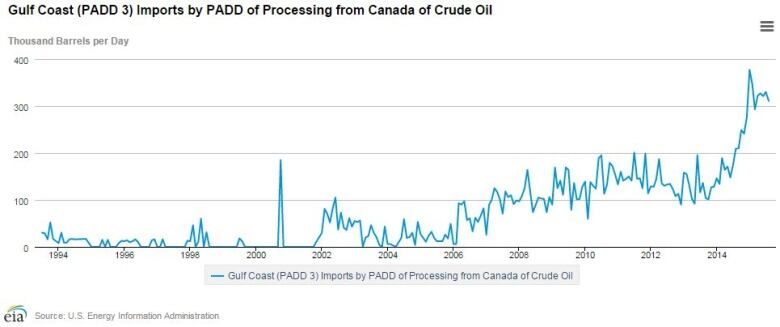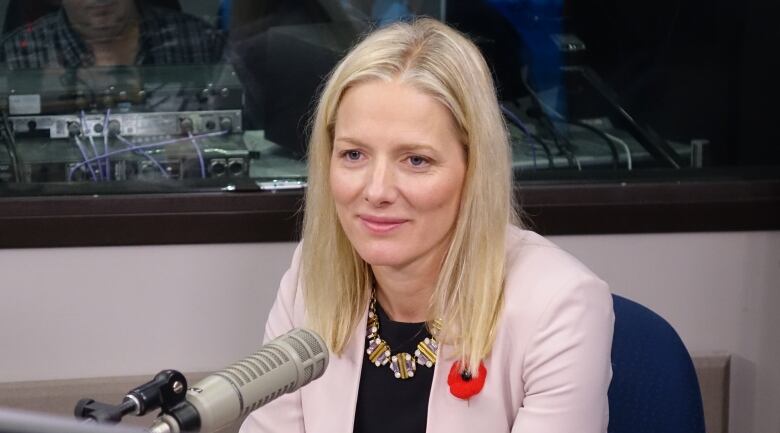Is Keystone XL dead? Or just resting?
Rejection of Keystone XL was a blow to TransCanada, but probably not the end of the story

There was an interesting line in TransCanada'sstatement on Friday, responding to the U.S. rejection of Keystone XL. The company said that it was keeping its options open, includingpossibly filing a newapplication for a cross-border oil pipeline.
That one pipe, nearly a metre wide, is being asked to bear all the sins of the carbon economy.NaheedNenshi, mayor of Calgary
A cross-border oil pipeline that would not be named anything like Keystone XL, I would wager, after that project was loaded with enough symbolism to crush even the strongest steel pipe.
As CalgaryMayor NaheedNenshi put it on Friday,"That one pipe, nearly a metre wide, is being asked to bear all the sins of the carbon economy."
No one will be surprised to see TransCanada reapply for a Keystone-likeoil pipeline. Getting to tidewater and the refineries of the Gulf Coast remains the fondest hope of the energy industry and the company itself has recently said that it thinks the project is inevitable. Butit's not going to be aneasy ride.

Oil is getting to market
The chart aboveshows how much oil makes its way to the Gulf Coast from Canada. In 2008, when the KeystoneXL pipeline was first proposed, roughly100,000 barrels a day made it to the refineries in Texas. That number has since tripled, as oil producers havefound other ways to move oil south, either by rail or lessdirect pipelines.
Keystone XL hadthe advantage of being a fairly straight shot from Alberta to Texas, but in recent years, oil has been taking the more scenic route from Alberta to Chicago, then down to Cushing, Okla.,and then to the coast. Is it ideal for the industry? No. Is it workable right now? Yes.
- The dead parrot of Keystone XL and why Obama killed it
- Keystone XL rejection criticized in Calgary as pure politicking
- Should oil companies face tobacco-style lawsuits over climate change?
"It is true that oil has been moving to market," said DaveCollyer, the formerchiefexecutive of the Canadian Association of Petroleum Producers. "Both through de-bottlenecking of existing pipelines and rail and other ways of getting to market.But we need new pipeline capacity to grow production, so it's problematic."
'This clears the decks for JustinTrudeauto go toParis to talk about climate change.'- Christopher Sands, Hudson Institute
Whether production will grow is about more than pipelines, though; It's very dependent on the price of oil, which is languishing under $50 US a barrel right now, a price where new oilsands expansion isn't really viable.
Oil prices will one day recover, however, and this lull is an opportunity for Canada to change the optics around our environmental credibility.
Canada's 'dirty oil'
In rejecting Keystone XL, Obama referred to Canadian oil as being "dirtier." You can quibble over that phrase all you want, but this is one of those cases whereperceptionis reality.
"I really believe that one of the stumbling blocks to Keystone XLwas really nothing to do with TransCanada, nothing to do with the pipe, per se," said WarrenMabee, assistant professor at the Queen's Institute for Energy and the Environment."And everything to do with the way that Canada has been developing thisoilsandsresourceand our lack of perceived response toward dealing with the climate change issue."
- Notley disappointed Obama called Alberta oil 'dirty'
- Saskatchewan reacts to Obama's rejection of Keystone XL
It is clear, at least to Canadians, that we are now starting to deal with the climate change issue. In Alberta, energy economist Andrew Leach is leading a panel that is writing a new climate change policy for the province.
Canada is taking a large delegation to Paris for the UN climate change conference, andwe now have a federal minister with "climate change" in her title.
Next steps

Sands thinksCanada has a year to do something about the "dirty oil"reputation, which could involveacommitment in Paris, followed by aplan at home, possiblyhosting a North American leaders' summit in Canada, something we haven't donesince 2007, in which a North American energy strategy can be discussed
After 2016
By the time there's a new presidential administration in place, it wouldn'tnecessarily have to beRepublican for a pipeline to be approved.
"Trudeau, by thatpoint, will be able to say,'Look at all the good things we've done, we deserve a second look.'" said Sands.
Hillary Clinton once supported Keystone XL, but changed her mind under the pressure of the Democratic primary season. If she were to win the presidency, she could shift her thinking again, if she has the political cover of Canada's commitment to climate change.
Of course, if a Republican were to win the presidency, it's much more straightforward, TransCanada could change the date on the cover letter andsend in roughly thesame application again.
Inthe meantime, though, Sands thinks it good thatCanada and the U.S. can build their relationship based on things other than a pipeline
"In the end, Obama gets what he wants, Trudeau doesn't suffer too much, and the project can come back to fight another day."













_(720p).jpg)


 OFFICIAL HD MUSIC VIDEO.jpg)
.jpg)



























































































